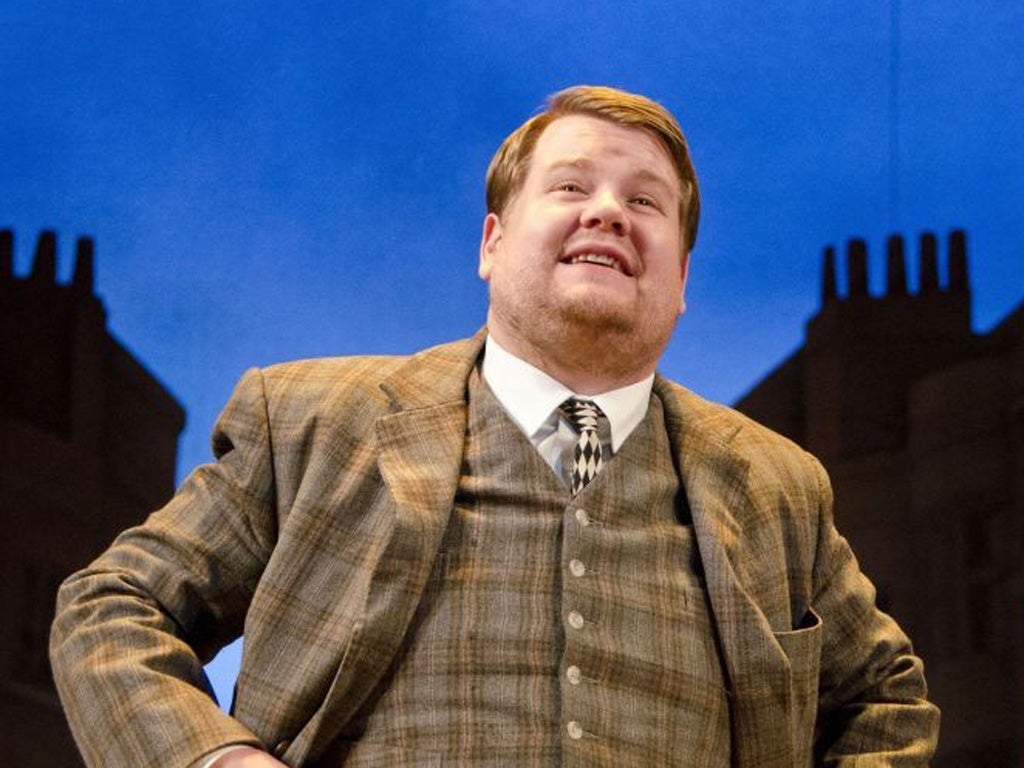David Lister: One language, two cultures – but not everything needs to be translated for America
The Week in Arts

There was something about the previews on Broadway this week of the West End hit One Man, Two Guvnors which fascinated me far more than whether James Corden would win over New York audiences. He did, of course, and deserved to with a comic tour de force.
I was more intrigued, and not a little annoyed, that the play's author Richard Bean and its director Sir Nicholas Hytner, also artistic director of the National Theatre, had been changing parts of the play so that American audiences would understand it.
References to cricket were pondered over; a solicitor became an attorney; double yellow lines were changed to "double parked". And, a dagger to the heart of this Arsenal fan, a reference to a "Gooner" was excised, deemed certain to frighten the natives.
I bow to no one in my admiration for Nick Hytner, but was this really necessary? It doesn't seem to happen when plays cross the Atlantic from the other direction. One of the greatest American plays ever written is Tennessee Williams's A Streetcar Named Desire. We don't have streetcars over here, just as America does not have solicitors. But you know what? I worked it out. And somehow "A Bus Named Desire" loses the poetry in translation.
And I feel I have been watching TV dramas about attorneys for ever. Worked that one out too. Likewise fire hydrants and several hundred other references to daily American life on British TV, film and stage. American authors, directors and producers don't seem to feel the need to translate before setting their vocabulary loose upon British audiences. Why do we feel the fear of being misunderstood?
I don't believe a Broadway audience needs to be patronised in this way. They've heard of cricket. They might even be interested to learn a bit more about cricket, to hear a cricketing joke. They don't need to be protected from cricket, any more than they need to have solicitor translated. They are intelligent, inquisitive people.
But the bigger point is that once you start rewriting plays, even odd phrases from plays, for a particular audience, where do you stop? Parts of Shakespeare's comedies are not easily understood, even by a British audience. Do we slip in a few words of translation to make life easier?
A joy of theatre, and perhaps most especially comedy, is being on a journey of discovery. Those of us who have never played baseball, never been in an American courtroom, never ridden a streetcar or studied the jargon of a salesman, can appreciate the references, and can work out meanings and dissect humour even where experience is lacking. It's absurd to think that an American audience is not capable of making the same effort and achieving the same results.
There's something that makes me feel a little uncomfortable in taking a work of art, any work of art, and amending it to what one suspects is the tolerance level of an audience or nationality. Place the work in front of them. It's not the job of anyone to second guess an audience's power of understanding, not even the writer and director.
All change in the world of ballet
The English National Ballet has landed a real prize with its appointment of Tamara Rojo as its new artistic director. Rojo, currently principal dancer with the Royal Ballet, is probably the best ballerina in Britain, and when I met her I found her to be not just utterly charismatic but a serious thinker about the state of dance.
For the Royal Ballet this means that it has recently lost its big male star, Sergei Polunin, and now Rojo. To lose one star is unfortunate, to lose two ... well, the thought must have occurred to them. For dance fans, though, it means that the English National Ballet might soon offer some real competition to the Royal, and that can only be exciting news. They will have to be even more on their toes than usual at Covent Garden.
This all-London party should stop
Meanwhile, congratulations to the Royal Opera House, which has three nominations for opera in tomorrow night's Olivier Awards, and bigger congratulations to the English National Opera, which has six nominations. But wait a minute, the Olivier Awards are only for London performances, and these are the only two dedicated opera houses in London, so they are always likely to be nominated really, aren't they?
At least this year Sadler's Wells threatens to spoil the party with one nomination. But the annual flurry of nominations for the ROH and ENO, with consequent mentions on their publicity material, is a bit meaningless really. They're always going to be there – unless the organisers of the Oliviers do something really radical, and acknowledge that there is life and art outside London.
Join our commenting forum
Join thought-provoking conversations, follow other Independent readers and see their replies
Comments
Bookmark popover
Removed from bookmarks